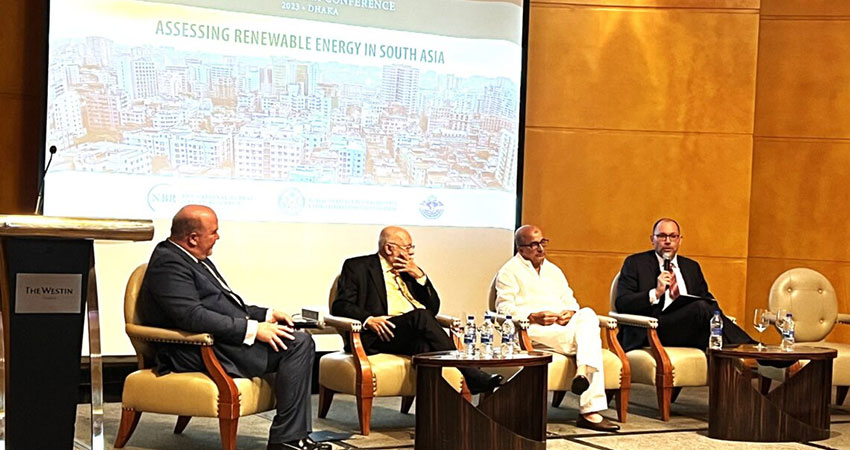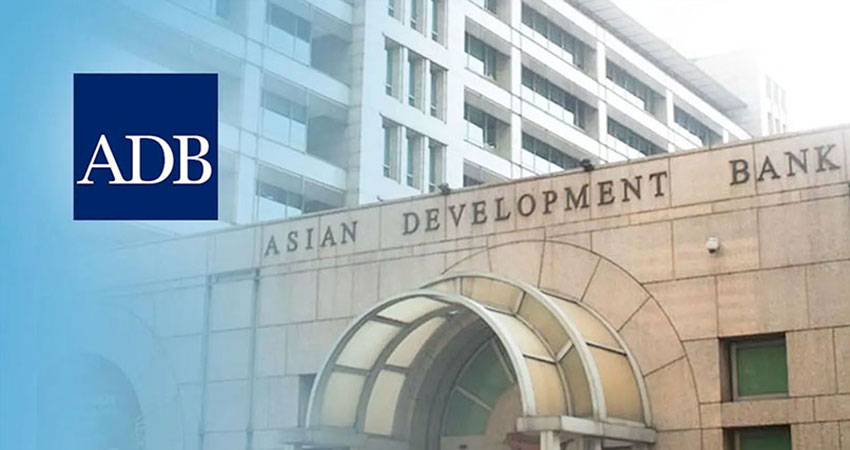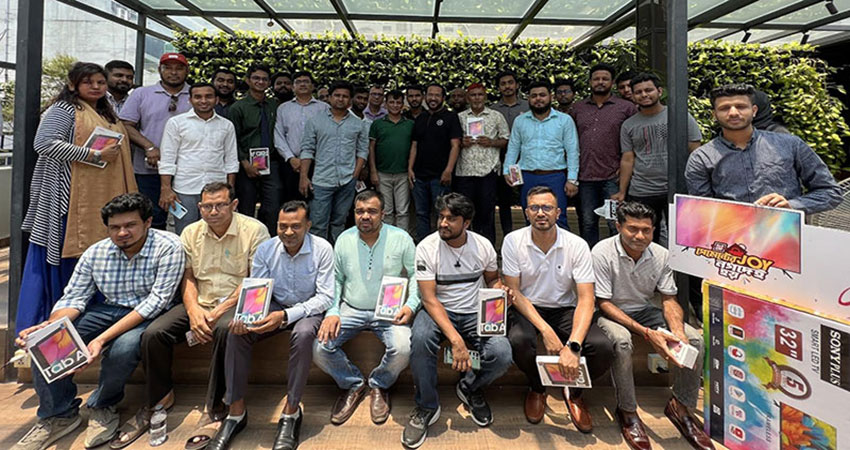Blackstone, an American investment management company, is interested in developing solar energy in Bangladesh to help support the transition to clean energy amid scarcity of renewable resources as the energy industry was shocked by the Russia-Ukraine war, said US Ambassador to Bangladesh Peter Haas.
"I met with a Blackstone portfolio company that is interested in developing solar energy in Bangladesh," he said while addressing the Clean EDGE (Enhancing Development and Growth through Clean Energy) Asia conference in a city hotel on Tuesday (23 May).
The Clean EDGE Conference was jointly organised by the Washington-based National Bureau of Asian Research and Independent University, Bangladesh.
"In case you are unfamiliar with Blackstone, it is the world's largest alternative asset manager, with nearly $1 trillion in assets, please let me repeat that, nearly $1 trillion.
"This trillion-dollar American business is fighting for an opportunity to invest in renewables in Bangladesh the same way other American companies did a generation ago to develop Bangladesh's natural gas," Haas said.
When the government of Bangladesh says it wants to attract more US private investment, Haas said it should be doing everything possible to get Blackstone to invest here.
"If a firm with $1 trillion in assets tastes success in this market, imagine what might follow. Alternatively, if it has a dissatisfying or frustrating experience, imagine all the other places that investment will go," he added.
"For Bangladesh to achieve a just energy transition, it will take contributions from the government, private sector, and civil society.
"It will require good policies in place to incentivize smart investments and cross-border electricity trade, privatisation of underperforming state-owned assets, adoption of new technologies, and a phasing out of the most damaging fossil fuel power generation facilities," he further said.
The world's fossil fuel supply is finite. Despite the industry's ongoing transition to clean energy, fossil fuels may be in short supply in the coming years. This underscores the urgency to advance a sustainable, equitable, and just energy transition to clean and renewable energy resources, he added.
Russia's invasion of Ukraine last year shocked the energy market in Bangladesh, like in many parts of the world. Countries became acutely aware of their dependencies on foreign sources of fuel, he said adding, "We need to collectively assess renewable and clean energy resources across the region to determine what makes the most sense for the people of South Asia."
To help Bangladesh and other countries in the region reach this goal, the US established Clean EDGE—Enhancing Development and Growth Through Clean Energy— Asia to work with the private sector, international financial institutions, and like-minded governments to support and accelerate Asia's clean energy transition.
Haas said, "Bangladesh is fortunate with its domestic supply of natural gas. I am proud to say that U.S. businesses have been instrumental in allowing Bangladesh to utilise those resources to drive its remarkable economic development over the last two decades.
"Those supplies are not infinite. And while Bangladesh may soon find more gas in new locations, eventually those too will run out. Renewable resources are the key to this energy transition for Bangladesh, for South Asia, and for the world."
Finding ways to harness solar, wind, geothermal, hydro, and other energy sources is the path to energy security and needed to support continued economic growth and sustainable development, the US ambassador said.
American company Blackstone wants to invest in Bangladesh's solar energy: US ambassador



















